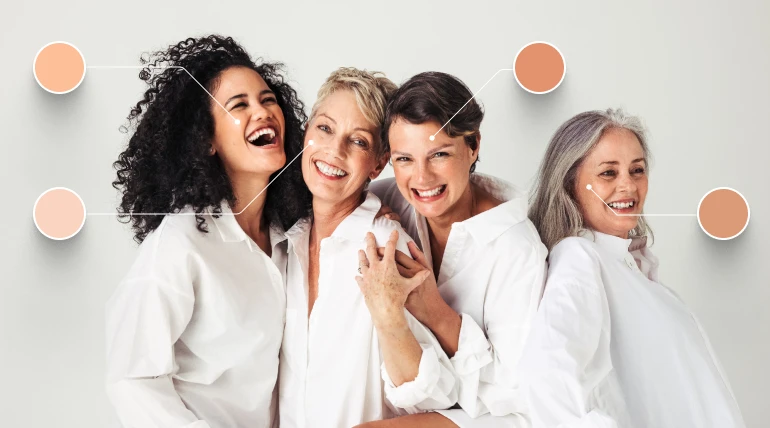In the past years, one particular concept emerged as a guiding principle in beauty – inclusivity. Consumers are looking for diversity in cosmetics, which is pushing brands to completely redefine their beauty standards and start catering to a wider range of skin tones.
The director of Mintel (a global market intelligence agency) has recently reported that up to 50% of consumers choose brands that showcase diversity and inclusivity. This only goes to show the extent to which these two hallmarks are gaining traction.
With the help of AI and its role in foundation matching, inclusivity is on the path to becoming a staple of beauty. Moreover, it has the power to revolutionize the meaning of a successful beauty brand in the 21st century.
So, let’s explore how diversity in cosmetics has taken the beauty industry by storm, the role of AI makeup in this shift, and why it’s time for inclusivity to become a priority rather than an afterthought.
The importance of inclusive beauty
Now, it would be very remiss of us to talk about makeup inclusivity without mentioning the global superstar, Rihanna (who needs no introduction), and how she completely transformed the beauty industry with the launch of Fenty Beauty.
Back in 2017, the singer’s cosmetics brand launched, and it featured (then completely unprecedented) 40 different foundation shades. The brand is also famous for regularly using models of different ethnicities in its campaigns. This was a huge milestone as it answered a consumer need to see more diversity in beauty products and advertising.
Fenty Beauty has been able to connect emotionally and cater to women worldwide who had long been unfairly under-represented and ignored by the beauty industry.
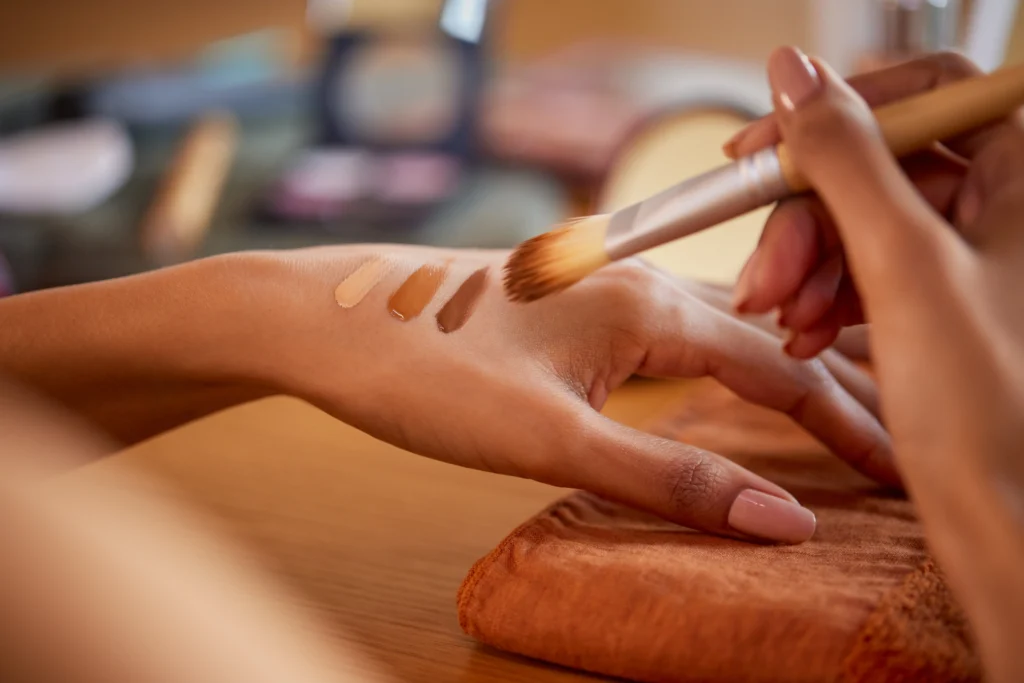
So, it’s not difficult to see how the now massively popular brand has managed to position itself as a leader in the industry, ushering in a new era of inclusivity and helping other beauty brands realize its groundbreaking importance.
It must be noted that inclusivity is not just another passing trend or a marketing tactic. It’s a movement that‘s redefining the beauty industry by acknowledging our differences and making sure everyone feels seen and heard.
By dismantling detrimental stereotypes, the cosmetics industry is finally starting to introduce a new, welcoming environment for all individuals by reflecting their unique identities.
We can all agree that everyone deserves to find products that work for them. And with this new (much-needed) shift, as well as a little bit of help from beauty AI, that is exactly what consumers have to look forward to.
Beauty AI: Revolutionizing foundation matching
According to recent research by McKinsey & Company, Black consumers are found to be 5.7 times more dissatisfied than non-black consumers when it comes to shopping for makeup products, and 2.9 times when it comes to skincare.
And it’s not difficult to understand why. There are simply not enough products out there for their needs, which tends to lead to a disappointing beauty shopping experience.
Luckily, the cosmetics industry is starting to see a palpable shift, largely thanks to AI beauty and foundation shade finders.
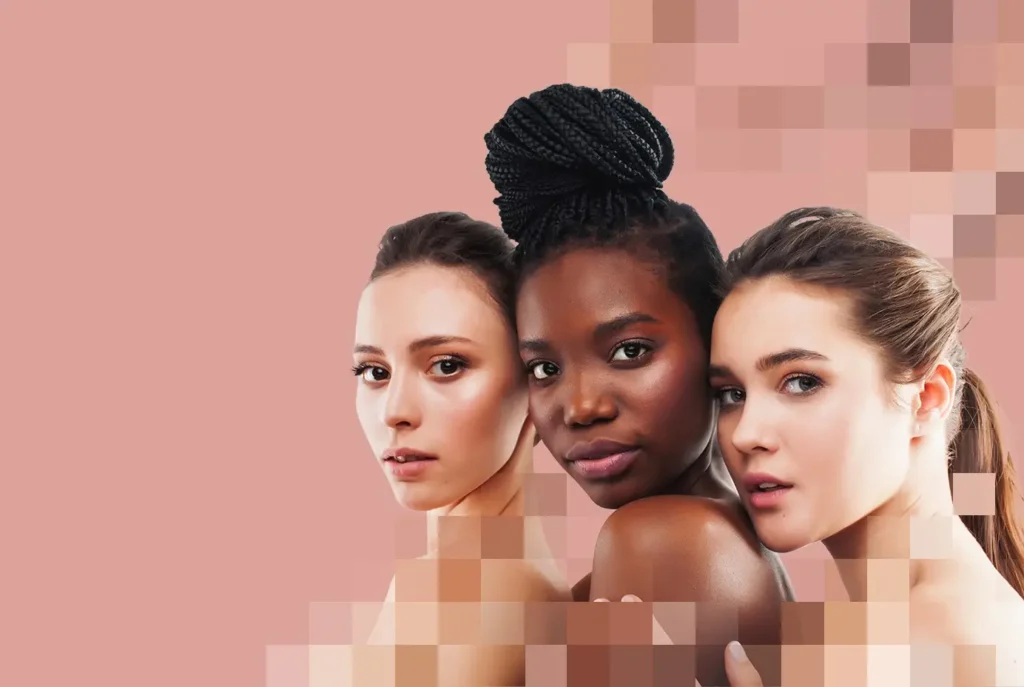
Beauty AI is a groundbreaking technology that’s altering how we approach foundation matching. Thanks to its ability to harness advanced algorithms, beauty AI does a wonderful job analyzing skin tones with great accuracy.
Thanks to this advanced technology, beauty brands are finally able to expand their product lines in a more inclusive way. Namely, by identifying and filling gaps in product shade ranges, thus ensuring every single person can find their ideal match.
This means no more settling for shades that are too dark or light or simply the wrong undertone. Beauty AI is leveling the playing field, eliminating guesswork, and allowing all consumers to feel seen and catered to.
At Arbelle, we’re proud to be a part of this incredible shift that celebrates the richness of human diversity. And that’s why we continue to find ways to leverage AI to promote makeup diversity and offer consumers a more personalized, inclusive beauty experience.
And the Monk Skin Tone Scale helps us do just that.
This innovative, game-changing classification system is designed with the idea to accurately represent a broad spectrum of human skin tones, which helps it stand out for its all-encompassing coverage and increased accuracy in categorizing skin tones.
Here’s more on what the Monk Skin Tone Scale brings to the table.
The Monk Skin Tone Scale: A comprehensive approach
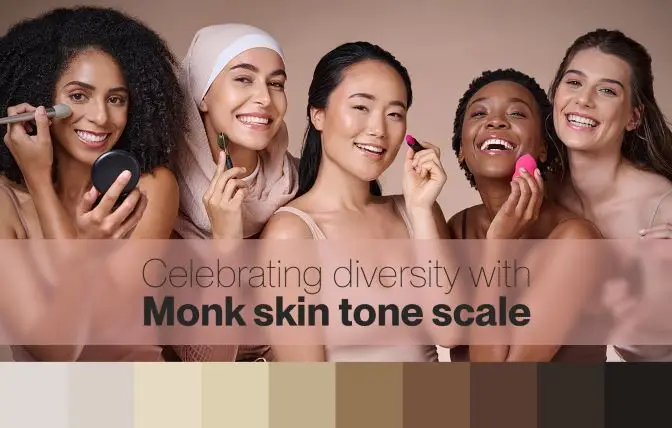
Historically, the Fitzpatrick Skin Type (FST) has been widely used to classify skin tone types.
However, a research paper conducted by Google experts has pointed out some limitations of the FST scale. Particularly those relating to its original design that focused on assessing skin reactivity to sunlight as opposed to accurately measuring skin tone.
The Monk skin tone scale was created in response to said limitations, particularly for underrepresented groups. This 10-shade scale was created with the sole intention of being more inclusive of the spectrum of various skin tones.
As such, this comprehensive system provides a more nuanced understanding of skin diversity, categorizing skin types based on many factors such as hue, saturation, and brightness.
What sets the Monk scale apart are two things:
- It provides a significant step forward when it comes to diversity in the makeup industry. It’s inclusive of all skin tones, thus empowering brands to focus on promoting equality by catering to every skin type. This will make sure that individuals of all skin tones – from the lightest to the darkest – can finally find products that complement their complexion.
- In addition, the Monk scale addresses the limitations of previous scales by offering a more comprehensive and nuanced approach. This ensures each skin tone is accurately represented and catered to, therefore setting a new standard in the cosmetics industry.
The Monk skin tone scale truly reflects the diversity of human skin. And as such, it stands as a testament to the evolving landscape of beauty. Precisely due to this dedication to inclusivity and diversity, we at Arbelle are proud to be the first in the world to have incorporated this game-changing system into our virtual foundation shade finder solution.
How the inclusive beauty movement is reshaping the beauty industry
With consumers increasingly seeking out products tailored to their needs and more specifically – skin tones, it was only a matter of time before inclusive beauty would start gaining traction.
Ever since Fenty launched 40 foundation shades in 2017, to the more recent partnership between beauty AI and the Monk scale at Arbelle, we’ve witnessed a beauty revolution empowering brands to start offering products that cater to the needs of each and every individual.
And the best thing about it?
This revolution is much more than just expanding foundation shade ranges. It’s about letting go of outdated norms and embracing the true beauty of diversity.
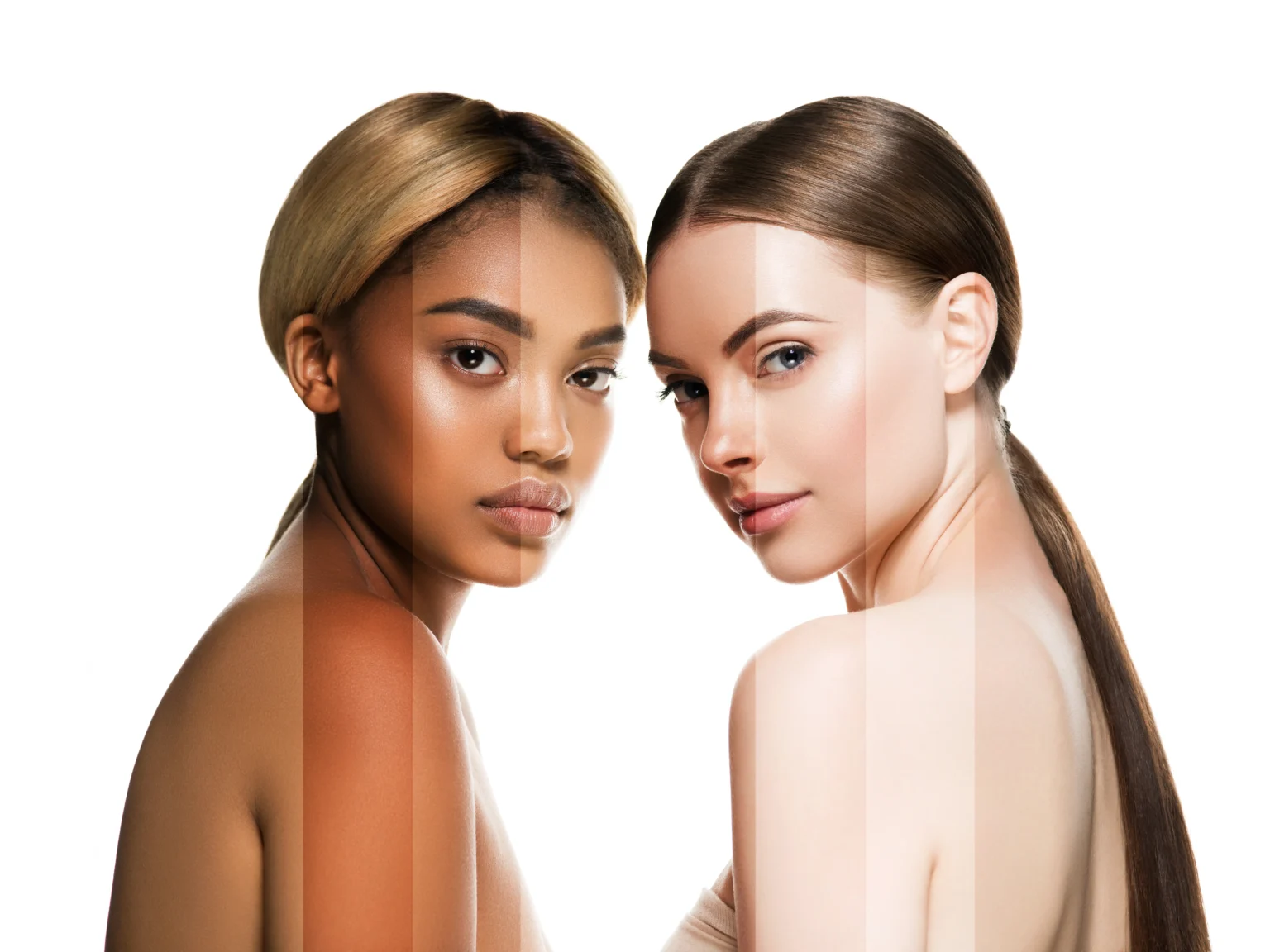
In a world where accurate representation has never been more important, beauty brands that choose to prioritize inclusivity are setting themselves apart and will be able to foster genuine connections with their consumers.
Other than simply being the right thing to do, it’s also smart business.
By tapping into underrepresented markets and appealing to a broader range of consumers, brands will be in a perfect position to drive growth and cultivate brand loyalty. On top of that, they will champion inclusivity and drive positive change.
By being part of this new shift in the beauty industry and focusing cosmetics marketing strategies on promoting a sense of empowerment, brands will send a powerful and important message that beauty comes in all shades and forms.
This focus on promoting diversity in cosmetics will ultimately help foster a culture of acceptance and appreciation for all types of beauty. And consumers will finally feel seen and valued, no matter their skin type.
The future of inclusive beauty
As we look to the future, it’s easy to see that the prospects for inclusive beauty have never been more promising.
With the fast-growing commitment to makeup inclusivity as well as the continued advancements in the technology department, the cosmetics industry is starting to feel more inclusive than ever – and we’re all here for it!
This journey goes beyond skin deep, though, and as we continue to champion diversity and stay at the forefront of this inclusivity movement, it’s vital to keep working together to create a positive beauty landscape where every single person will feel equally catered to.
If you, too, want your brand to be a part of this incredible change or simply want to understand more about how to contribute to this transformative movement, get in touch with us anytime.
Try AI shade finder today
Unlock the potential of an inclusive virtual foundation try-on and let your beauty brand thrive.
